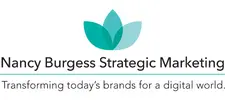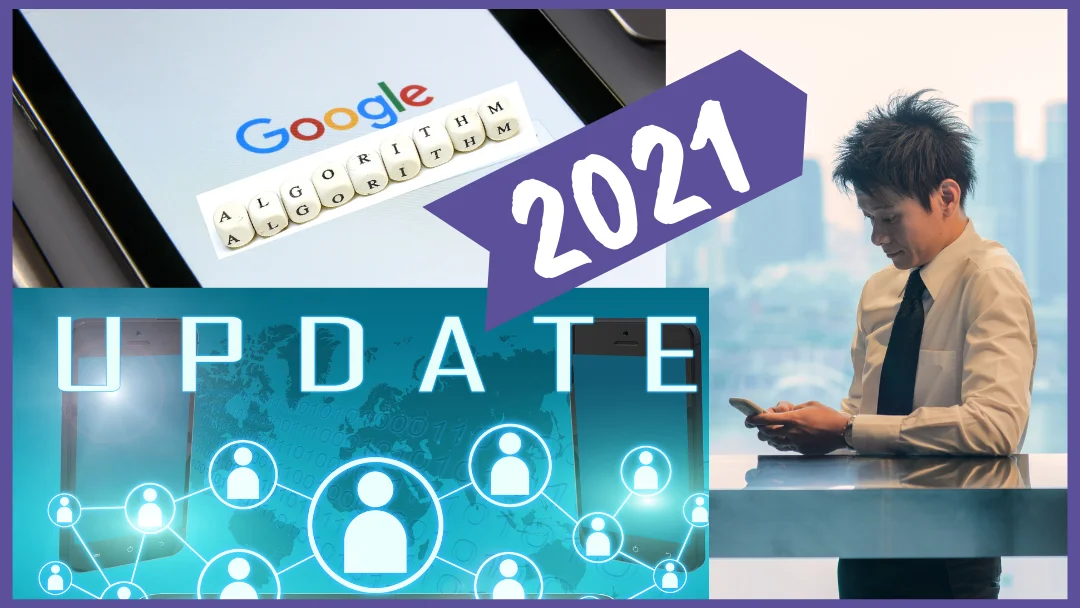Google reportedly alters its search algorithm six times a day to avert hackers and spammers. However, several times a year it releases larger algorithm updates. Here are three Google algorithm updates that are occuring in 2024.
Google’s Algorithm Update for Passage Ranking: February 2021
What Passage Ranking Is:
Google now can pull text that is deep in a page and showcase that text in the search engine return pages (SERPs). It’s a way for Google to respond to very specific queries (people “Googling”). It literally pulls and quotes text from deep in your pages. It’s estimated to affect about 7% of searches.
What Small Businesses Need to Know About the Passage Ranking Algorithm Update:
Google is getting increasingly “smarter” about understanding what page content is about. In that way, it is better able to correctly respond to searches.
What Small Businesses Need to Do About This February Google Algorithm Update:
John Mueller, Google Search Advocate, says there is nothing additional to do in terms of SEO for this algorithm update. As always, you want to ensure that you have quality content.
Quality content is extremely important to Google as demonstrated in its guidance. These guidelines are 175 pages long. They can be summarized in terms of E-E-A-T. Expertise. Experience, Authoritativeness. Trustworthiness. The company, the author, and the site should demonstrate these qualities.
For our clients, we create content by interviewing subject matter experts (SMEs), writing the content, and having the expert review the content for accuracy. We simultaneously offer our SEO services to ensure that the content, the company, and the author are seen to demonstrate E-E-A-T.

Google’s Algorithm Update for Mobile-first Indexing: March 2021
What Google’s Mobile-First Indexing Is:
Mobile-first indexing means that Google will only show the pages from your mobile site on the search engine return pages (SERPs).
What Small Businesses Need to Know About Mobile-first Indexing
If you feel like this sounds familiar, it should. That’s because Google originally planned this update in September 2020. Instead, they shifted the deadline to March 2021 as a result of the pandemic.
As a small or medium-size business (SMB) here’s what else you should know. If your business has a separate mobile site from your desktop site, your desktop pages will never again appear in Google’s SERP.
Do people have to twist and turn their phones, or scroll horizontally to see your website content? If so, you’ll need to improve your mobile website pages to be more mobile-friendly.
What SMBs Need to Do About This March Google Algorithm Update:
Are your mobile pages optimized for indexing? Here are a few strategies you’ll want to put in place if you haven’t already.
First, ensure the top of your mobile pages load quickly. At the same time, any content toward the bottom of the page can “lazy” load. This will help your user be able to interact with the page more quickly.
Second, you’ll want to make sure that your mobile pages have the same structured data markup as your desktop pages. (You can read about structured data and rich snippets here.)
Furthermore, Google encourages you to prepare for mobile-first indexing by ensuring your mobile site has the following elements:
- High-quality, web-supported images with descriptive alt text (special text that identifies what’s in the picture)
- Consistent page and video URLs that don’t change
- High-quality content (See E-A-T above)
- Titles, captions, filenames, text and metadata that are descriptive and consistent with your desktop pages and videos
- Ads that follow The Better Ad Standards (avoiding ads at the top of the page or annoying pop-ups that block content as soon as users come to your page)
- Video in an easy-to-see position, so viewers don’t have to scroll excessively to see them

Google’s Algorithm Update for Page Experience: May 2021
What the Page Experience Algorithm Update Is:
As we’ve reported many times, Google wants users to have an excellent experience when they search for content. The page experience update is an entire group of ranking signals designed to achieve a good user experience.
The Page Experience Update signals include:
- Mobile-friendliness
- Safe browsing (site doesn’t have malware, viruses, or other deceptive engineering)
- HTTPS (secure sites with an SSL certificate: not HTTP)
- No intrusive interstitials (a fancy word for annoying marketing and legal pop-ups that interfere with viewing the main content of the page)
- Core Web Vitals (three new site health benchmarks)
Core Web Vitals benchmarks include:
- Largest contentful paint (LCP): roughly how quickly all of the main content uploads for the user
- First input delay (FID): how quickly the site is interactive or responsive after loading (when it’s usable)
- Cumulative layout shift: the visual stability of the content (does it shift or jump when readers go to view it?)
What Small Businesses Need to Know About the Page Experience Update
According to John Mueller, Search Advocate at Google, the MOST important ranking signal will remain relevancy. Relevancy is a determination of how well the page aligns with what users want to know. (That’s why we conduct keyword research as part of our SEO process.)
In other words, a more relevant page will likely rank higher than a page that meets all page experience thresholds. However, sites that are relevant AND meet the page experience criteria will likely rank higher.
Google is aware that most businesses are not nearly ready for this update. However, sites will become increasingly ready. Those who get ahead are likely to rank better.
What’s more, if sites meet all page experience criteria, Google plans to mark them with some sort of green badge.
What SMBs Need to Do to for This May Google Algorithm Update
Here’s what small and mid-size companies need to do for each ranking signal:
Mobile Friendliness
You can check your pages’ Mobile Friendliness here. Mobile-first indexing (described above) will be a part of the page experience benchmark.
Safe browsing
Ensure you have adequate security in place and that you’re not using deceptive practices.
HTTPS
As discussed in 15 Tips for SEO, your site should be secure. In other words, it should have an SSL certificate. We might add: you shouldn’t have to pay your host for this. (Shame on GoDaddy.)
No intrusive interstitials
Search Engine Journal suggests you can have a pop-up if it blocks only 15% of the mobile experience. Google offers guidance on interstitials—and which ones are impacted
Core Web Vitals
Currently, page load times are one of the ranking factors in Google’s algorithm. With core web vitals, how fast the page loads, how fast it’s interactive, and how stable the content is will all become ranking factors. To get an approximation of your core web vitals, you can use these six core web vitals tools. We find that is easy to access and understand PageSpeed Insights.
Goals for your core web vitals are as follows:
We’re here to help. Learn more about our website-building process.
Helpful SEO Hint:
Always be sure your website developer has given you administrative access to your data! If your web developer should win the lottery, “get hit by the bus,” or if the relationship sours, you want to be able to access your data yourself and/or assign a new user to do so. We don’t buy lottery tickets, avoid walking in traffic, and make every effort to keep our customers satisfied. 🙂 Nevertheless, we like to ensure that our clients have access to their sites and tools.
Nancy Burgess


